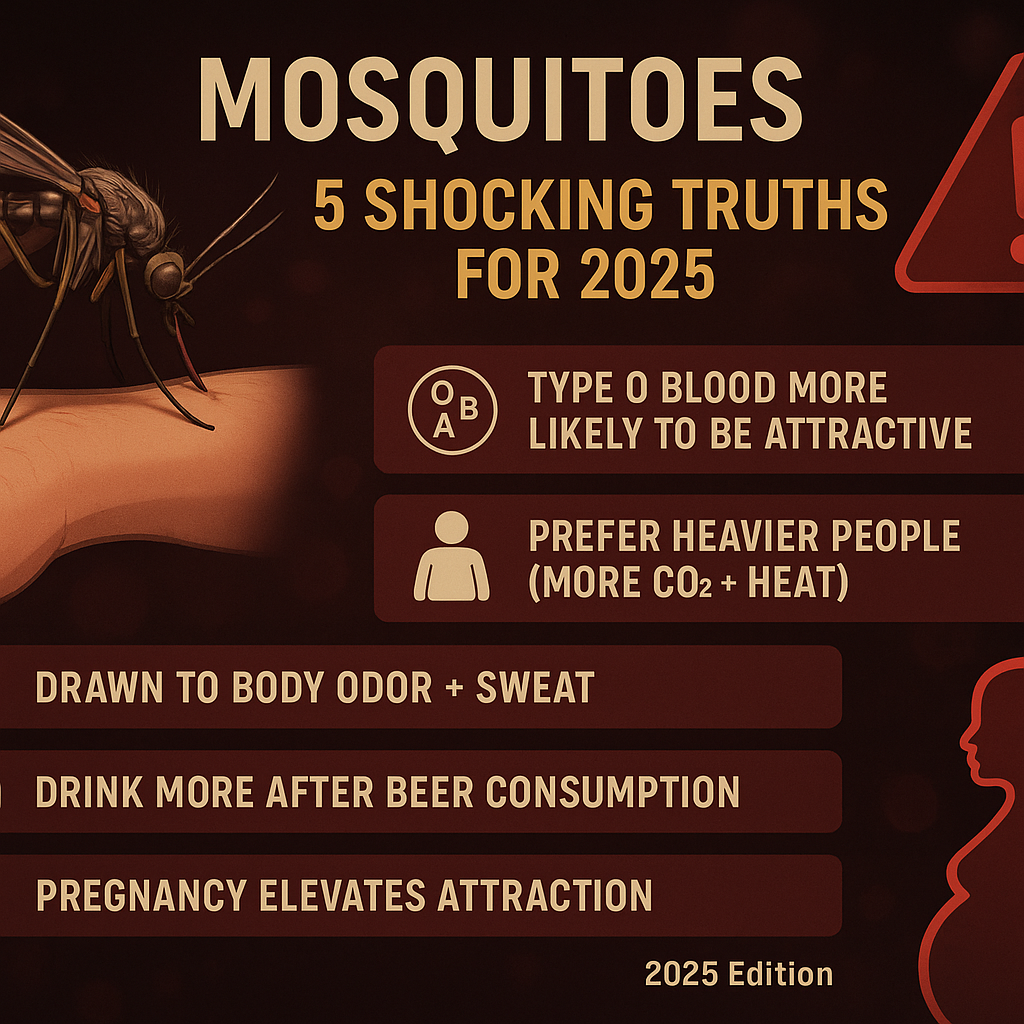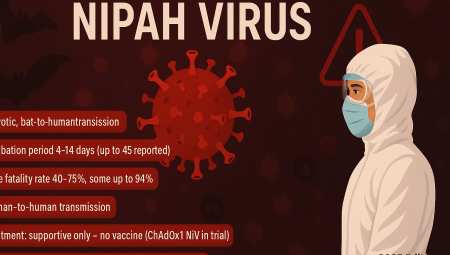Ever wondered why some people seem to be mosquito magnets while others walk away unscathed? It’s a common mystery, sparking countless theories about diet, scent, and even personality. But what about something as fundamental as your blood type? The question, “Are mosquitoes attracted to a certain blood type?” has lingered for decades, leading to a mix of scientific inquiry and popular folklore. As we move further into 2025, with increasing concerns about mosquito-borne diseases, understanding precisely what draws these tiny vampires to us is more critical than ever. This in-depth article dives into the fascinating science behind mosquito attraction, debunking myths, revealing surprising truths, and offering practical advice to help you avoid those itchy bites. Prepare to uncover the shocking realities of what truly makes you a mosquito’s next meal.
The Mosquito’s Quest for Blood: More Than Just a Meal
For female mosquitoes, a blood meal isn’t a luxury; it’s a necessity for reproduction. The proteins and nutrients found in blood are vital for egg development. But finding a host isn’t as simple as just flying around. Mosquitoes employ a sophisticated array of sensory tools to locate their next meal, detecting cues from distances of up to 50 meters. These cues include carbon dioxide, body heat, and a complex cocktail of chemicals emitted by human skin. While the idea that mosquitoes are attracted to a certain blood type has been widely discussed, the reality is far more nuanced and involves a symphony of biological signals rather than a single, dominant factor.
The Blood Type Connection: Is O-Positive Really a Mosquito Magnet?
The long-standing theory that mosquitoes are attracted to certain blood types suggests that individuals with Type O blood are particularly vulnerable. This notion stems from several studies, most notably a 2004 study published in the Journal of Medical Entomology, which found that mosquitoes (specifically Aedes albopictus) landed on Type O secretors significantly more often than on other blood types.
Unpacking the “Secretor” Status: A Crucial Distinction
The key to understanding this connection lies in what’s called “secretor status.” Approximately 80% of people are “secretors,” meaning they secrete water-soluble antigens of their blood type into their bodily fluids, such as saliva, sweat, and tears. Non-secretors, on the other hand, do not. Mosquitoes are believed to detect these antigens on the skin, allowing them to differentiate between blood types even before biting.
Here’s a breakdown of the observed preferences based on secretor status:
- Type O Secretors: Studies suggest these individuals are the most attractive to mosquitoes.
- Type A Secretors: Generally considered less attractive than Type O, but more attractive than Type B.
- Type B Secretors: Fall somewhere in the middle, often showing moderate attraction.
- Non-Secretors (all types): Tend to be the least attractive, as they do not express their blood type antigens on their skin.
It’s important to note that while some research supports this hierarchy, it’s not the only factor at play. The mosquito’s attraction to blood type antigens is just one piece of a much larger, complex puzzle of host-seeking behaviors.
Beyond Blood Type: Other Potent Attractants for Mosquitoes
While blood type might play a role, it’s far from the sole determinant of mosquito attraction. Several other powerful factors can make you a prime target, often overshadowing your blood type.
Carbon Dioxide (CO2) Emissions: The Mosquito’s Prime Beacon
This is arguably the most significant attractant for mosquitoes. As we exhale, we release CO2, which mosquitoes can detect from considerable distances using specialized receptors on their antennae.
- Higher Metabolic Rates: Individuals with higher metabolic rates tend to produce more CO2. This includes larger individuals, pregnant women, and those who have recently exercised.
- Breathing Rate: Faster or heavier breathing also increases CO2 output, making you more detectable.
Body Heat and Temperature: A Warm Welcome
Mosquitoes are drawn to warmth. They can sense even subtle differences in temperature, using infrared receptors to locate warm-blooded hosts. Individuals with naturally higher body temperatures or those engaging in activities that elevate body heat (like exercise) become more appealing targets.
Lactic Acid and Other Skin Chemicals: The Olfactory Signature
Our skin emits a unique blend of chemicals, and some of these are irresistible to mosquitoes.
- Lactic Acid: Produced during exercise, lactic acid is a major attractant.
- Ammonia: Another byproduct of metabolism found on the skin.
- Uric Acid: Present in sweat.
- Various Carboxylic Acids: A complex mixture of organic acids contributes to our individual scent profile.
The specific combination and concentration of these chemicals vary from person to person, creating a personalized “scent fingerprint” that mosquitoes can hone in on.
Clothing Color: A Simple Visual Cue
Believe it or not, the color of your clothes can make a difference. Mosquitoes are visually attracted to dark colors, such as black, navy, and dark green. This is because dark colors absorb and radiate more heat, making you appear warmer and more distinct against the background. Lighter colors, on the other hand, are less visible and absorb less heat, potentially making you less of a target.
Pregnancy: A Double Whammy
Pregnant women are disproportionately bitten by mosquitoes, largely due to two factors:
- Increased CO2 Output: Pregnant women exhale about 21% more carbon dioxide than non-pregnant women.
- Higher Body Temperature: Their average body temperature is slightly elevated.
These combined factors make them particularly attractive to mosquitoes.
The Latest Research in 2025: Advanced Insights into Mosquito Attraction
Recent advancements in entomology and molecular biology continue to refine our understanding of mosquito host-seeking behavior. As of 2025, researchers are leveraging cutting-edge technologies to identify new attractants and repellents.
- Genomic Studies: Scientists are mapping the genomes of various mosquito species to identify genes responsible for olfactory and thermal sensing, offering new targets for repellents or control methods.
- Microbiome Research: The bacteria living on our skin (our microbiome) play a significant role in producing many of the volatile compounds that attract mosquitoes. Studies are exploring how manipulating the skin microbiome could reduce attraction.
- AI and Machine Learning: These technologies are being used to analyze vast datasets of human volatile organic compounds and mosquito responses, identifying complex patterns that were previously undetectable. For example, a 2024 study utilized AI to pinpoint specific ratios of certain acids on the skin that make individuals highly attractive.
- CRISPR Technology: There’s ongoing research into using gene-editing tools like CRISPR to modify mosquito attraction pathways, potentially leading to novel population control strategies.
Pro Tips for Becoming Mosquito-Proof (Regardless of Your Blood Type!)
While you can’t change your blood type, you can certainly take proactive steps to reduce your appeal to mosquitoes.
- Wear Light-Colored Clothing: Opt for light-colored, loose-fitting clothing when outdoors, especially during peak mosquito hours (dawn and dusk).
- Use Effective Repellents: Apply EPA-registered insect repellents containing DEET, Picaridin, Oil of Lemon Eucalyptus (OLE), or IR3535. Always follow product instructions carefully.
- Minimize Outdoor Activity During Peak Hours: Mosquitoes are most active during dawn and dusk. Plan your outdoor activities to avoid these times if possible.
- Eliminate Standing Water: Mosquitoes lay their eggs in stagnant water. Regularly empty bird baths, pet water bowls, clogged gutters, and any other containers that collect water around your home.
- Use Fans: Mosquitoes are weak fliers. A strong fan can create air currents that make it difficult for them to land on you, effectively “blowing them away.”
- Consider Permethrin-Treated Clothing: For extended outdoor exposure, particularly in high-mosquito areas, permethrin-treated clothing can offer an additional layer of protection.
Frequently Asked Questions About Mosquito Attraction
What attracts mosquitoes the most?
Mosquitoes are primarily attracted to carbon dioxide (CO2) exhaled by humans, followed by body heat, and a complex mixture of chemicals on our skin like lactic acid, ammonia, and various carboxylic acids. Movement and visual cues (like dark clothing) also play a role.
Does diet affect mosquito attraction?
While anecdotal evidence abounds, scientific studies have largely not found conclusive evidence that specific dietary changes (like eating garlic or bananas, or taking vitamin B supplements) significantly repel mosquitoes or alter attraction levels. The primary attractants are metabolic byproducts and natural body odors.
Why do mosquitoes bite some people more than others?
Mosquitoes bite some people more frequently due to a combination of factors, including higher carbon dioxide exhalation, elevated body temperature, unique skin microbiomes producing attractive chemical compounds, and individual genetic predispositions. While blood type may play a minor role for secretors, it’s often overshadowed by these other factors.
Are children more attractive to mosquitoes?
Children, particularly active ones, may sometimes be perceived as more attractive to mosquitoes due to their higher metabolic rates and consequently increased CO2 exhalation, as well as greater movement and body heat compared to sedentary adults. However, individual variations in skin chemistry are still the dominant factor.
Do natural remedies like citronella truly repel mosquitoes effectively?
Natural remedies like citronella, essential oils (e.g., lavender, peppermint), and basil can offer some level of mosquito deterrence, but their effectiveness is generally short-lived and less potent compared to EPA-registered chemical repellents like DEET or Picaridin. For reliable protection, especially in areas with disease-carrying mosquitoes, expert consensus favors proven repellents.



